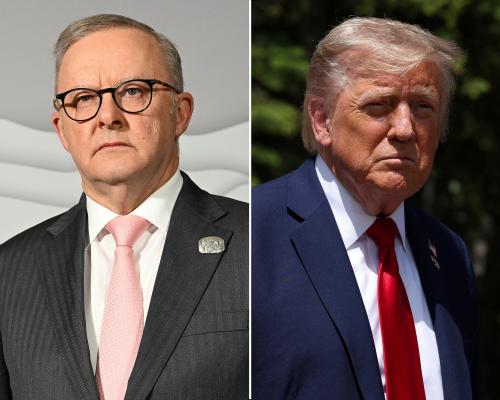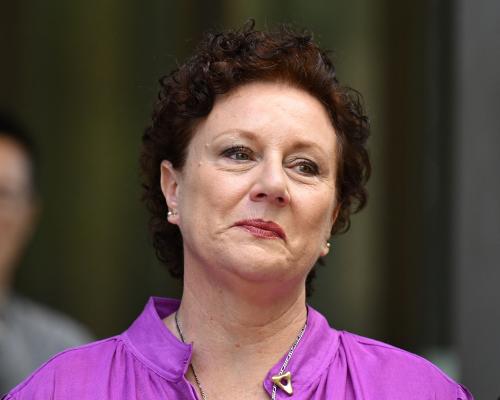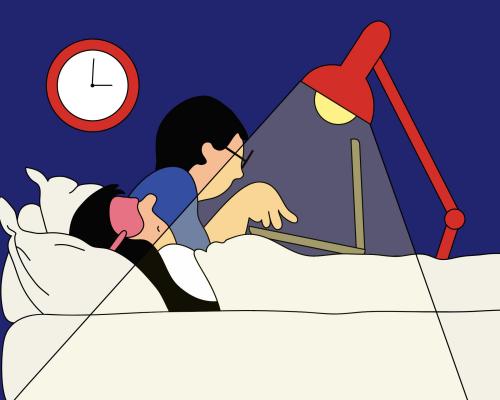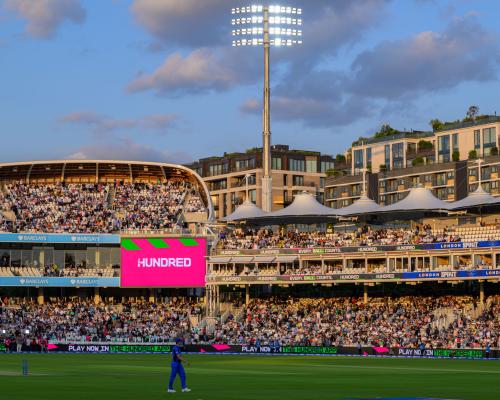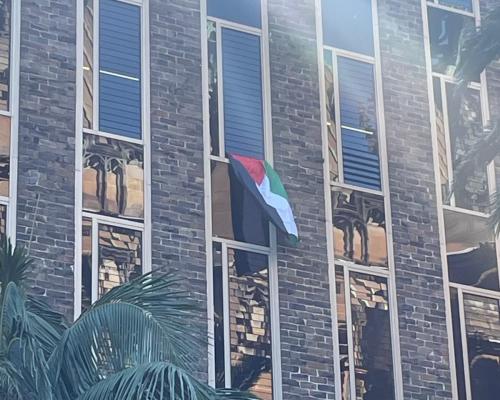
The University of Sydney has removed a Palestinian flag hanging outside an academic’s office after accusing him of breaching its new flag policy.
The 13-page flag policy, revised in June and formerly referred to as flag guidelines, sets out the university’s requirements for flying and displaying flags and using university flagpoles. Under the policy, “unapproved flags” must not be flown permanently, including flags that represent unlawful activities, aren’t consistent inconsistent with university values, represent a political party or are considered to be “otherwise unsuitable”.
Dr David Brophy, a senior lecturer in modern Chinese history, arrived on campus on Tuesday to find his flag, which had been hanging from an external window of a large campus building, had been taken.
Prior to this, he had received an email from the dean of the Faculty of Arts and Social Sciences, Prof Lisa Adkins, advising him the university was “aware of a flag” they believed he had displayed on the outer wall of the A18 Brennan MacCallum building.
“We consider that the ongoing display of the flag is inconsistent with clause 2.8(1) of the Policy which confirms that unapproved flags can be displayed in such areas on a temporary basis only,” Adkins wrote on 26 June.
“To this end, we require you to remove the flag from the outer wall of the building by 4 August 2025. Should the flag not be removed by this time, it will be removed by Central Operations staff and will be treated as lost property.”
Sign up: AU Breaking News email
The flag policy notes flags must not be flown from university infrastructure without approval from the brand team, and that “no structure or fixture may be attached to any building to allow a flag to be displayed without approval”.
Staff will remove flags that are “unapproved” considered “inappropriate, dangerous or offensive” or contravene “any university policy”, the policy notes. A breach of the rules can be considered as misconduct.
Adkins noted in her email to Brophy that if he wished to continue to display the flag he could do so in a “non-shared indoor space”, or apply for approval to display the flag outside.
After receiving the email, Brophy replied to Adkins, along with the university’s vice-chancellor, Prof Mark Scott, saying his conscience “won’t allow me to comply”.
“I go through the day now with gruesome images of emaciated children running through my mind,” Brophy wrote on Monday. “At a time like this, ethical obligations far outweigh any ad hoc institutional policies, particularly those transparently aimed at stifling opposition to an ongoing genocide.
“I’d like you both to reflect on the moral weight of what you’re doing and withdraw the instructions to remove the flag.”
Brophy told Guardian Australia he had received no “direct explanation” as to why “it’s such a bad thing to have this flag up”. The flag was removed when he was not in the office, he said, and as of Wednesday afternoon he was yet to receive a response to his email.
“I’ve filed a lost property report, and I’m hoping security will be able to locate my flag,” he said.
“I’d like to think the outer facing window of an office at a university was a place where some kind of display of opinion was still possible.
“But the whole flag policy was introduced precisely in response to people like me hanging Palestinian flags … they’re hiding behind their policy to justify the action.”
A spokesperson for the University of Sydney, who echoed the rules laid out in the email initially sent out to Brophy, said Palestinian flags had not been banned from campus and that the flag was removed from his office because “unapproved flags of any kind can only be flown from university infrastructure on a temporary basis”.
“The flag is being held safely for collection,” they said. “We expect Palestinian flags to continue to feature on our campus, including as part of [Thursday’s] planned National Student Strike for Palestine.”
The national president of the National Tertiary Education Union (NTEU), Dr Alison Barnes, said university leadership “should be standing with staff to defend and uphold these cornerstone principles, not introducing policies that undermine them”.
Barnes said there had been increased reports “across the country” of new measures which had a “chilling effect on free speech and academic freedom at universities”.
The University of Sydney introduced a string of new measures on protests after commissioning an external review into its processes, following the disbanding of a pro-Palestinian encampment, and amid concern from Jewish bodies, including the Australasian Union of Jewish Students (AUJS), that it had not adequately addressed antisemitism on campus.
The measures, which included requiring three days notice for demonstrations and banning staff and students from holding banners on campus without prior permission, faced backlash over curtailing freedom of speech.
The NTEU’s University of Sydney branch president, Dr Peter Chen, said the university’s new policies had “reduced freedom of expression, academic debate, and rights to industrial organising on campus”.
Peter Wertheim, the Executive Council of Australian Jewry’s co-chief executive, said academics who displayed visible flags and political symbols on campus were not just making a statement about their own views.
“They are deliberately confronting other people who share their working and learning environment with those views, even against their wishes,” he said. “Such coercive behaviour is a grounds for disciplinary action in most workplaces, and the same rules should apply at universities.”
Wertheim said freedom of expression did not include the right to make campuses “threatening and exclusionary for other employees or impressionable students”.

